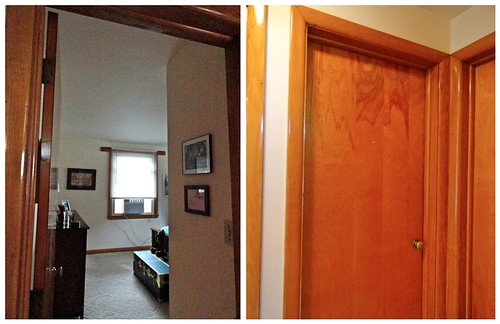Open or closed door policy?
A Frenchman or woman’s home, like that of every American, is his/her castle – that’s for sure. But that castle is also a very private domain.
It usually takes a very long time – the time it takes for a friendship to blossom and mature – for a French person to invite you to his or her house and, generally, that first invitation will not be for a full-blown dinner, but for a friendly apéro (drinks, with snacks such as peanuts, sausage, olives, and crackers) or for an afternoon café, which is usually served with cake or cookies. Of course, there are exceptions to this rule. Some French people are less formal than others and will have you in their house before they really know you very well. But, as a general rule, the French are not as likely as Americans to become ‘fast friends’ with anyone or to invite others into their homes.
Americans who invite you into their home for the first time will often, in a grand display of pride of home ownership, give you a tour of their place – of course, once more, this does not always hold true, but it’s a fairly common practice. This happens only very rarely in France. A French person’s home is his or her private space and, as such, it is not to be shown to strangers or friends, unless they are extremely close friends. I have been many times in every one of my four cousins’ houses, I have spent tons of time at my uncle’s, and I have never been invited to tour their entire place. My cousin Jean’s wife, who is an artist, once showed my daughter and me her studio located on the top floor of their house, but we never got a single glance at the bedrooms. The only two French homes of which I have seen every single room are my brother’s house, and that of my mother, who passed away two years ago.
If you are invited to spend a few days at a French person’s house, of course, you will see more of that house than you would if you had just gone there for lunch or dinner. In the latter case, you will probably see only the living room, where you will typically have the apéritif, the dining room, where the meal is served, and possibly the toilette, which is seldom located in a bathroom, but is a little room of its own (and when I say ‘little’ I definitely mean it). Surprisingly, most of the time, it is not a powder room with a sink in which you can wash your hands after having done your business – hence the general notion that the French’s hygiene is lacking in this instance (just politely ask your hosts where you can wash your hands before returning to the dinner table!).
If you are an overnight guest in a French home, don’t count on seeing the entire house, or even on getting a glance at every room, because bedroom doors will be kept closed. In contrast, my experience is that, in most American homes, all doors – bedroom and bathroom doors – are always kept open. I am not quite sure why the French keep all of their house doors closed; is it that they do not want visiting strangers to peek into their most intimate spaces? Or is it just a random habit?
Or does it mean that Americans keep an open door policy in their homes, whereas the French prefer to keep a closed door one? And if that is the case, is this metaphorical of the legendary openness and friendliness of Americans, and of the allegedly more closed or reserved nature of the French?

Elisabeth says…”I was born in northern France and have lived in the United States since 1975. I teach French at Clarion University in Western Pennsylvania, which I love! I also enjoy traveling (to France), cooking, keeping fit, reading and watching quality TV and foreign films. I am active on Facebook and will keep sharing my insights on being a Franco-American on MaVieFrancaise.org.”
Editor Note:
Elisabeth is based in Western Pennsylvania, USA… If you would like to join our My French Life team of Contributing authors, photographers, interviewers and very talented people who live all around the world, then send me a message info@MyFrenchLife.org








I just finished reading a book called ‘Sixty Million Frenchmen Can’t Be Wrong: why we love France but not the French’ which spoke a lot about similar cultural differences between France and America.
I think your article does as good a job as explaining the customs and where they come from.
Thanks, Laura. I read that book some years ago (its authors have since published a book that deals with the history of the French language, if I am not mistaken…). I thought that it was a great book!